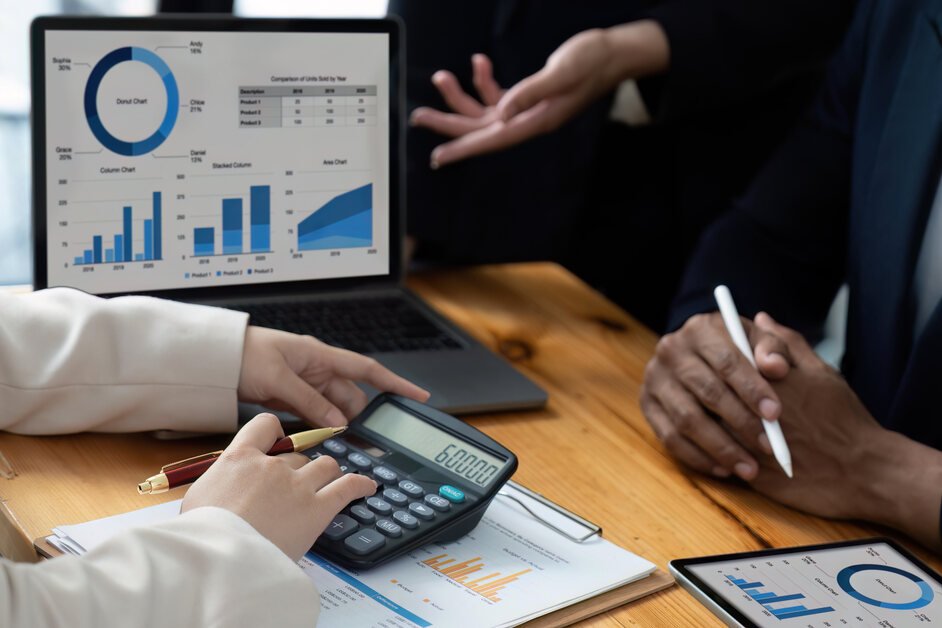Sustainable accounting practices refer to the integration of environmental, social, and governance (ESG) metrics into the financial reporting process. It’s a methodology that enables businesses to quantify and report their eco-friendly initiatives and the impact they have on both their financial health and the environment. In the historic city of Manassas, where the preservation of both culture and nature is paramount, eco-friendly businesses are not only contributing to the sustainability of the local environment but also paving the way for financial resiliency and innovation. These practices empower companies to make informed decisions that foster long-term profitability while simultaneously safeguarding natural resources for future generations, a balance that is especially crucial for businesses in the heart of Virginia’s green movement.

The specific impacts of sustainable accounting within the domain of Manassas’s eco-conscious businesses are profound. These range from enhanced brand reputation and increased customer loyalty to potential savings through resource efficiency and the utilization of green tax incentives. As businesses in this historic city strive to maintain harmony with nature, while also flourishing economically, sustainable accounting stands as an invaluable tool in their arsenal. In the forthcoming sections, we will delve deeper into the key takeaways of sustainable accounting practices. These insights will not only outline the myriad benefits that Manassas businesses can reap from such practices but also highlight the strategic steps necessary to implement and optimize these measures effectively. Stay tuned, as understanding these elements is crucial for any eco-friendly business looking to stay ahead in today’s environmentally conscious market.
Things to know
- Manassas eco-friendly businesses are increasingly integrating sustainable accounting practices, which help them measure and report on their environmental impact. These practices include tracking energy consumption, waste production, and water usage, allowing businesses to identify opportunities for cost savings through reduced resource consumption and improved operational efficiency.
- The implementation of sustainable accounting requires businesses to adopt new metrics and reporting methods such as the Triple Bottom Line, which accounts for social, environmental, and financial performance. This holistic approach ensures that environmental responsibility is considered alongside profitability, promoting long-term business viability and aligning with consumer expectations for corporate sustainability.
- Government incentives are available for Manassas businesses that adopt eco-friendly practices. These can take the form of tax credits, subsidies, or grants, aimed at offsetting the costs associated with implementing sustainable technologies and practices. Companies utilizing sustainable accounting are better positioned to qualify for these incentives, as they can more accurately report their environmental efforts and savings.
- Collaboration with stakeholders is essential when Manassas businesses transition to sustainable accounting. Engaging employees, customers, suppliers, and the local community in sustainability efforts not only fosters a culture of environmental consciousness but also enhances transparency and can lead to innovative solutions that further reduce the company’s ecological footprint.
- To stay ahead of the curve, Manassas businesses are also looking towards emerging technologies and methodologies, such as AI-based energy management systems and blockchain for transparent supply chain tracking. These technologies complement sustainable accounting by providing more precise data and automating processes for better environmental performance management.
What Are the Best Practices in Sustainable Accounting for Businesses in Manassas That Aim to Be Environmentally Friendly?
The most comprehensive practices in sustainable accounting for Manassas eco-friendly businesses involve integrating environmental and social costs into financial analysis. **Costs such as carbon emissions, water use, and waste generation are evaluated alongside traditional financial metrics to provide a fuller picture of a company’s performance.** By incorporating lifecycle costing, full cost accounting, and environmental management accounting, businesses can track and manage their environmental impact, which may lead to improved resource efficiency and potential cost savings.
Implementing Lifecycle Costing
Lifecycle costing is an approach that assesses the total cost of ownership of a product or service over its entire lifecycle, including extraction of raw materials, production, distribution, use, and disposal. Manassas businesses adopting this practice can identify areas to reduce environmental impacts and costs, such as opting for materials with lower environmental footprints or improving product design for better recyclability at the end of its life.
Adopting Full Cost Accounting
Full cost accounting (FCA) expands on traditional accounting by including indirect costs, such as environmental degradation or health impacts, in financial calculations. By adopting FCA, eco-friendly businesses in Manassas can make more informed decisions that reflect their true cost to society and the environment, leading to more responsible business practices that align with their sustainable values.
Integrating Environmental Management Accounting
Environmental Management Accounting (EMA) is a subset of accounting that focuses on the internal costs and benefits of environmental aspects of activities. It helps Manassas businesses recognize the cost savings from actions like reducing waste, conserving energy, or increasing recycling. With accurate EMA, businesses are better equipped to make strategic decisions about process improvements and investments in eco-friendly technologies.
Engaging in Social and Environmental Reporting
Transparent reporting on eco-friendly initiatives and their outcomes is essential for businesses in Manassas. Sustainability reports following frameworks such as the Global Reporting Initiative provide stakeholders with information about a company’s environmental impact and social responsibility efforts, fostering trust and supporting the business’s green credentials.
Using Green Budgeting and Forecasting
Green budgeting involves allocating financial resources specifically towards environmental objectives. Forecasting, on the other hand, is the process of predicting future environmental costs and savings. Manassas businesses can benefit from both by prioritizing expenditure on sustainable initiatives and being better prepared for future regulatory changes or shifts in market demand for green products and services.
Implementing Carbon Accounting and Management
Carbon accounting tracks and measures greenhouse gas emissions. Eco-friendly businesses in Manassas can use carbon management strategies to reduce their carbon footprint. Initiatives may include investing in renewable energy sources, enhancing energy efficiency in operations, and participating in carbon offset programs.
What Are Essential Tips for Manassas Eco-Friendly Businesses to Enhance Their Sustainable Accounting Practices?
- Regularly assess and update accounting practices to reflect the current best practices in environmental and social accounting.
- Invest in specialized training for finance staff to understand and apply sustainable accounting methods effectively.
- Collaborate with other eco-friendly businesses and stakeholders in Manassas to share knowledge and develop industry-wide standards for sustainability.
- Utilize technology and software that can assist in the collection, analysis, and reporting of environmental and social data alongside traditional financial metrics.
- Stay informed about local and federal environmental regulations and incentives that can impact financial planning and sustainable growth opportunities.
Frequently Asked Questions
What Is Sustainable Accounting?
Sustainable accounting refers to the integration of environmental, social, and governance (ESG) factors into financial reporting and decision-making processes. It allows a business to report on its sustainability performance and impacts, often with the goal of showcasing a commitment to environmentally and socially responsible practices.
Why Should Manassas Businesses Adopt Sustainable Accounting Practices?
Adopting sustainable accounting practices can benefit Manassas businesses in various ways, including improving public image, meeting stakeholder expectations, managing risks associated with climate change and resource scarcity, and identifying opportunities for cost savings through energy and waste reduction.
How Can We Measure the Impact of Our Business on the Environment?
Impact can be measured through various metrics and indicators such as carbon footprint analysis, water and energy usage, waste generation, and other resource management indicators alongside traditional financial parameters. Sustainability reporting frameworks like the Global Reporting Initiative (GRI) can provide guidance on metrics to use.
Are There Any Financial Incentives for Implementing Sustainable Accounting Practices?
Manassas businesses may qualify for various financial incentives such as tax credits, grants, or rebates when adopting sustainable practices. Additionally, reduced operational costs and increased investment appeal due to a strengthened sustainability profile also serve as financial incentives.
What Are Some Common Sustainable Accounting Techniques?
Common techniques include lifecycle costing, full-cost accounting, environmental budgeting, and the incorporation of ESG metrics into traditional financial statements. Each enables businesses to account for environmental and social costs in their financial analysis.
Is Sustainable Accounting Compulsory for Businesses in Manassas?
No, sustainable accounting is currently not compulsory, but it is increasingly encouraged due to consumer demand for transparency and the potential for future legislative requirements. An early adoption can also help in positioning a business as an eco-friendly leader within the community.
How Can a Small Business in Manassas Begin to Implement Sustainable Accounting Practices?
Small businesses can start by setting environmental goals and tracking key performance indicators. They can also seek out frameworks provided by organizations like GRI, Sustainability Accounting Standards Board (SASB), or seek guidance from professional bodies or sustainable accounting consultants.
What Are the Challenges Faced by Businesses When Shifting to Sustainable Accounting?
Challenges include the initial cost of changing systems, lack of expertise in sustainable reporting, determining what to measure, and reconciling short-term financial goals with long-term sustainability objectives. Ongoing education and training can be crucial in overcoming these challenges.
How Does Sustainable Accounting Benefit the Local Community of Manassas?
Sustainable accounting encourages businesses to operate responsibly, which can lead to reduced environmental impact, improved local air and water quality, and the creation of a culture that values long-term well-being over immediate financial gain, positively influencing the local community.
Can Sustainable Accounting Positively Influence Business Reputation?
Yes, by demonstrating commitment to sustainability, businesses can improve their brand reputation. This can attract customers and employees who prioritize environmental stewardship and can enhance relationships with investors, supply chain partners, and government entities.
Final Thoughts
As Manassas businesses strive to align with eco-friendly values, sustainable accounting practices become increasingly important. Not only do they provide a clearer picture of the true cost and impact of business operations on the environment, but they also pave the way for conscious growth and responsible resource management. These practices reflect a business’s commitment to not just profitability, but also planetary and social stewardship.
Adopting sustainable accounting may require initial effort and investment, but the long-term benefits for the company and the wider community are significant. It offers a transparent approach that can foster trust and loyalty among customers, enhance corporate reputation, and ultimately lead to a more sustainable future for both business and the environment. Manassas businesses have an opportunity to become leaders in this domain, setting an example for how small to medium enterprises can make a real difference in the journey toward sustainability.




